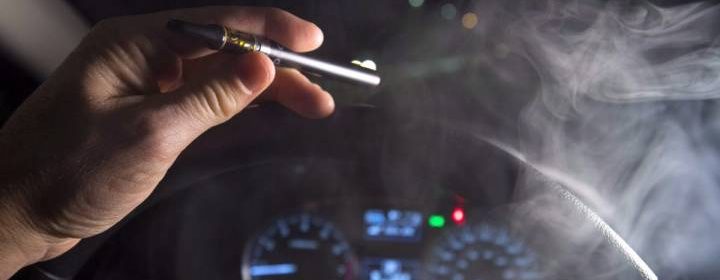Roadside drug testing device picks up false positives from poppy seeds and tea, B.C. lawyers find

Police are continuing to remind people not to get high before driving. But what about the dangers of eating poppy seed cake?
A Vancouver lawyer says her suspicions about the new Drager DrugTest 5000 roadside testing device have been confirmed after her law firm ran two days of testing that turned up false positives.
The saliva-screening device was approved by the federal government ahead of cannabis legalization last October to be used by law enforcement to check drivers for THC, the main psychoactive agent in marijuana.
Kyla Lee with Acumen Law already had concerns about the device when it was approved, namely that it only detects the presence of drugs rather than impairment.
On Sunday, Lee said her staff ran two days of tests on the device and found it can be even more problematic.
“We had several individuals eat poppy seed loaf from Tim Hortons and poppy seed cake they made at home. All of those people tested positive in the saliva test for opiates, and later tested positive in subsequent urine tests,” Lee said.
“So if a police officer were to pull those people over and gave them a saliva test, they would be arrested.”
If that person then tested positive for opiates in a urine test at the station, Lee said, that person could be charged with impaired driving.
Lee said the tests also found similar positive results for cocaine after staff drank coca tea, which derives from the same plant and is commonly available.
“That’s so concerning, because in our legal system we have a zero-tolerance threshold for cocaine,” she said. “Any detectable amount of cocaine in your system means you’re guilty of a criminal offence.”
Finally, Lee said the testing found the Drager is unable to differentiate between THC and CBD, which is the non-psychoactive agent in cannabis and is often treated for medical treatment and pain relief.
“We found there was a retention period of half an hour. It was still found in the mouth even though there were no lingering effects in the body,” she said.
The studies included control groups of people that didn’t ingest anything that passed the test, Lee said, but those who consumed the above products did “incredibly poorly.”
Lee said the information found through the testing could spell doom for convictions sought through positive roadside results at police stops,
“People who are wanting to try different kinds of tea are now at risk of being charged with impaired driving,” Lee said. “It’s another example of how the government really failed in approving this device.”
The device has been called into question before, with independent testing finding the Drager stopped working altogether in temperatures lower than 4 degrees Celsius.
Vancouver police announced in September it wouldn’t be using the Drager device, with other Lower Mainland and Fraser Valley departments adopting a wait-and-see approach.
Abbotsford police, meanwhile, confirmed Sunday they have acquired a Drager device and are conducting their own tests.
The department said they haven’t seen any data that would put the reliability of the device in doubt.
Global News has reached out to the Department of Justice and B.C. Solicitor General Mike Farnworth for comment.
Lee said Ottawa should conduct further testing and potentially recall the device until the government is positive it can be effective — or find another device that is.
“They relied on an assurance from the manufacturer that they had tested the device, but the literature provided said they only tested half a dozen things,” she said.
“We need to put more effort in this country into finding a device that can tell the difference between something that’s impairing a person and something that’s merely present in their system.”
Sign up for our Cannabis IQ newsletter
© 2019 Global News, a division of Corus Entertainment Inc.
Source: Read Full Article

